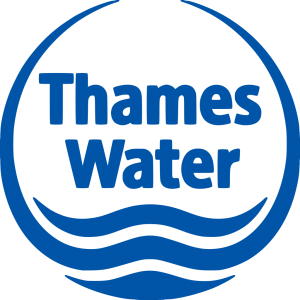
Customers choose Thames Water because they trust us, we are easy to do business with, and we really care
Challenges
Thames Water is the UK's largest water and wastewater services provider with 14 million customers in London and the Thames Valley west of London. It has 4,500 employees and supplies an average of 2.6m litres of drinking water per day. The aim was to ‘enable staff to deliver first-rate service to customers via excellent communication and interpersonal skills’.
Results
The feedback from the delegates following delivery was extremely promising. Delegates specified that they experienced a newfound confidence having been shown best practice and introduced to some user friendly hands-on tools and techniques that they could immediately apply to transform their current customer service approach.
The brief
To enable staff to deliver first rate service to customers via professional telephone techniques
Following the receipt of some disappointing feedback from OFWAT, Thames Water was committed to ensuring that staff were up-skilled in their ability to provide excellent customer service and introducing a proactive, ‘can do’ attitude amongst the team to transform customer service standards to a new level.
Through the telephone techniques programme as a whole, Thames Water wanted their teams to
• know what good customer service looks like and how to improve customer satisfaction
• demonstrate how to build strong rapport and empathy when dealing with customers
• identify the elements that create a positive impression when speaking with customers on the telephone
• demonstrate techniques to gain a positive outcome from difficult and challenging customer situations
Engagement & Design
GBS worked with the Customer Service Contact Centre team, the Help Desk and the Operations & Service team to develop an in-depth understanding of the business, the challenges faced by staff, and the customer outcomes required.
We spent time observing staff in their work environment, as well as holding focus groups with front line staff and managers. This approach identified local issues and challenges, and enabled staff to have a direct input into designing meaningful case studies and scenarios for the workshops.
A one day workshop and a half day workshop were designed to meet the particular challenges of the Contact Centre and the Help Desk roles.
Delivery
The workshops were highly interactive, using techniques such as
• brainstorming to generate ideas, involvement and energy
• role play and exercises to demonstrate the tools and techniques and to engage all participants to ensure that they have a practical ability to deal with challenging situations in an effective way
• specially designed case studies to add realism, practicality and relevance
• skills practice in small groups to give participants a ‘safe’ opportunity to develop and practise dealing with realistic situations, and to receive feedback to boost learning
The main objective of the workshops was to provide delegates with some practical tools and techniques which they could immediately apply into their roles.
‘Customer Service Memory Cards’ were given to each participant at the end of the workshop, to help reinforce sustainability of the key messages, tools and techniques that had been introduced on the workshop. They were asked to retain these credit-card sized cards and to use them as aide-memoires of best practice and as a means of re-energising themselves following challenging situations.
Outcomes
The immediate feedback from the delegates following delivery was extremely promising. Delegates specified that they experienced a newfound confidence having been shown best practice and introduced to some user friendly hands on tools and techniques that they could immediately apply to transform their current customer service approach. Follow-up feedback from the management team was excellent and the general atmosphere within the workplace improved over the following quarter with delegates experiencing an increased level of commitment to supporting the organisation’s vision; ‘If customers had a choice they would choose Thames Water’.
Pre course engagement with staff and managers via focus groups and observation created a positive ‘buzz’ around the programme, which paid dividends in terms of attendance and participation. It also enabled the trainers to familiarise themselves with the issues at hand and tailor the programme accordingly, the success of which was picked up in the feedback.
Subsequent evaluation, including management and customer feedback, has indicated that the desired uplift in customer service standards has been achieved. It has also indicated that the ‘Memory Cards’ were still being used to raise conversations about customer service.






